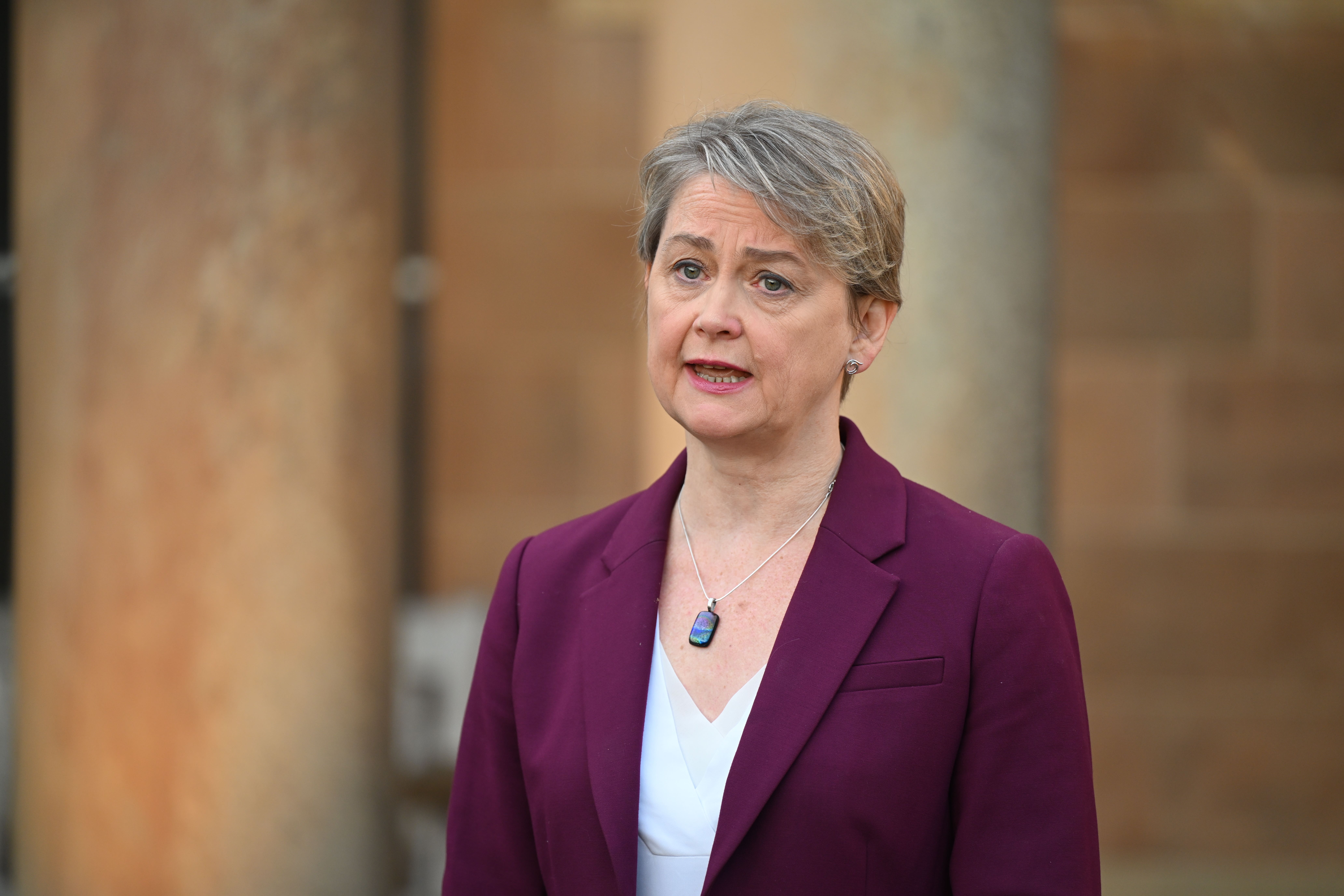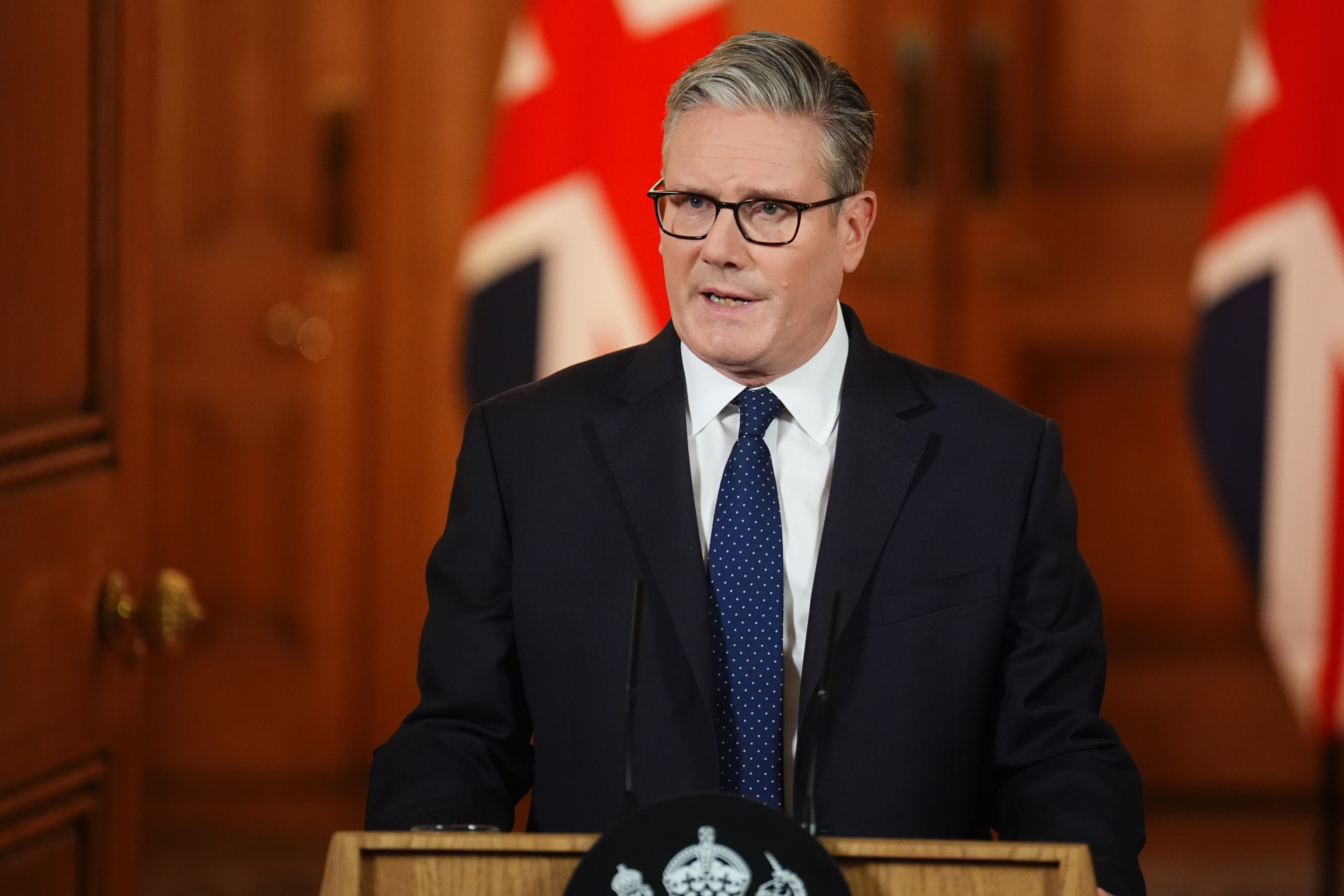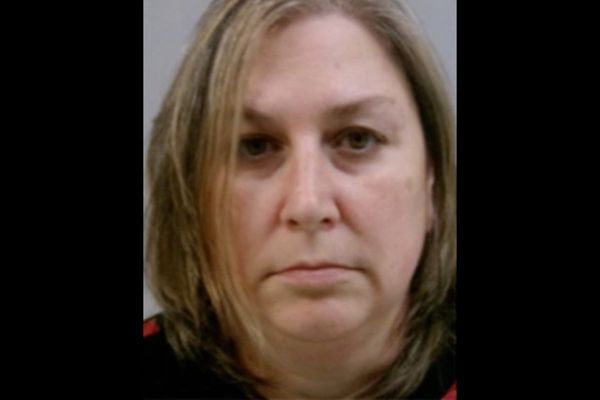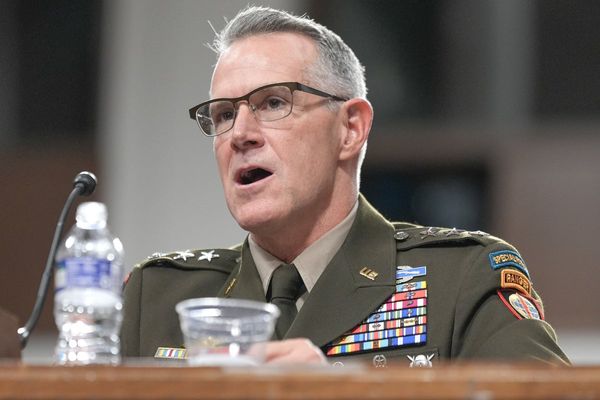A former attorney general has claimed that Sir Keir Starmer could have done more to help out the prosecution before the collapse of the trial of two alleged Chinese spies.
Dominic Grieve described claims that ministers could not insist that officials pass on documents from MI5 that proved China was a national security risk as “weird” and questioned why the current attorney general, Lord Hermer, was not more involved.
It comes as Yvette Cooper claimed that she wanted the alleged Chinese spies prosecuted when she was home secretary in charge of MI5, but claimed her hands were tied.
The prime minister has insisted that the law was not in place for a trial to go ahead, but avoided acknowledging that he knew about crucial documents that the Crown Prosecution Service (CPS) was denied by government officials, including national security adviser Jonathan Powell.

The case against 30-year-old Christopher Cash, a former parliamentary researcher, and 33-year-old Christopher Berry, a teacher, collapsed last month after the government did not provide evidence that Beijing was a threat to national security.
Mr Grieve was asked by The Independent whether Lord Hermer could have intervened in the case as Attorney General and whether it was correct that ministers could not have insisted that the CPS were given the documents they requested.
He said: “I think that the whole thing is weird. I don't think the AG [attorney general] can order anything, but he could have raised it. I can't see why the PM was not in a position to ask the Cabinet Office to provide the evidence.”
Shadow home secretary Chris Philp earlier claimed that Sir Keir’s team had access to “multiple” documents that proved China was a national security risk but said it “chose not to” hand them over.
But speaking on BBC Radio 4’s Today, Ms Cooper, who is now foreign secretary but was in charge of MI5 at the time, insisted she had wanted the case prosecuted and was “deeply frustrated” when it collapsed.
She added that ministers were “not involved in any of the evidence that was put to the Crown Prosecution Service ... because this was a criminal case”.
Sir Keir has maintained that because the last Conservative administration had not designated China as a threat to national security, his government could not provide evidence to that effect, which the director of public prosecutions (DPP), Stephen Parkinson, said was required to meet the threshold for prosecution.
But the collapse of the case has raised questions about Britain’s willingness to confront China as Sir Keir’s government looks to build closer ties with the country.
Mr Parkinson had blamed ministers for failing to provide the crucial evidence needed to proceed, saying the CPS had tried “over many months” to gather material.
Writing in The Times, Mr Philp said: “The DPP is calling out the government. Keir Starmer’s excuse is that the previous government did not publicly categorise China as a threat to national security.

“There is no delicate way to say this: what the prime minister said is totally untrue – and anyway it is not the legal test.”
Mr Philp, who was a Home Office minister between October 2022 and July 2024, added: “The government has multiple internal documents and reports on the threat China posed to national security in the 2021-23 period.
“Starmer’s government could have disclosed these documents to the CPS, in private if needed. It chose not to.
“It instead destroyed the prosecution by refusing to disclose the evidence the CPS needed – evidence the government has in its possession – and instead provided unhelpful witness statements.”
Meanwhile, crossbench peer Lord Sedwill, who served as national security adviser from 2017 to 2020, during which time he was also Britain’s most senior civil servant, said he was “genuinely puzzled” about the collapse of the trial.
“The truth is that, of course, China is a national security threat to the UK directly, through cyber, through spying and so on, and indirectly because of some of their aggressive behaviour in the South China Sea and elsewhere,” the former Cabinet Secretary added, speaking on The Crisis Room podcast.
Jonathan Hall KC, the independent reviewer of terrorism legislation, has said he is “investigating” the episode.
“I know quite a lot about it now and I don’t think that the public explanation that’s been given so far is at all adequate,” he told LBC.

But speaking at a press conference in India on Thursday, Sir Keir said he “can be absolutely clear, no ministers were involved in any of the decisions since this government’s been in, in relation to the evidence that’s put before the court on this issue”.
He said: “It’s not a party political point. It’s a matter of law. You can only try someone on the basis of the situation as it was at the time of the alleged offence.
“You can’t try them on the basis of the situation as it might evolve weeks, months, years down the line. That’s a fundamental and that’s at the centre of this particular issue.”
Meanwhile, Ms Cooper told the Today programme: “As the prime minister has set out, this was also about not just the law that was in place at the time of the offences, but also the government stance that was in place at the time of the offences, and it was not for us to say in retrospect what that should have been.”
The foreign secretary added: “Let’s be really clear, the activity that was alleged in this case absolutely should be illegal and should face prosecution, and that’s why we supported changing the law since then, which makes it easier to prosecute cases like this.”
Responding to Mr Grieve’s comments, a government source said: "The deputy national security adviser's evidence submitted for this case was based on all relevant information - from all parts of government - about the last government's position on China. Ministers were not involved in evidence submitted by the deputy national security adviser."
UK stocks spooked by new Trump threat of fresh tariffs on China
Chinese firm to build UK’s largest wind turbine facility
Fear and vigilance rise as attacks on houses of worship intensify across the world
Farage says ex-Reform leader in Wales who took Russian bribes was ‘bad apple’
Dutch far-right politician Wilders fears he may have been a target of Belgian attack plotters
Government defends expansion of digital ID plans to include children as young as 13







